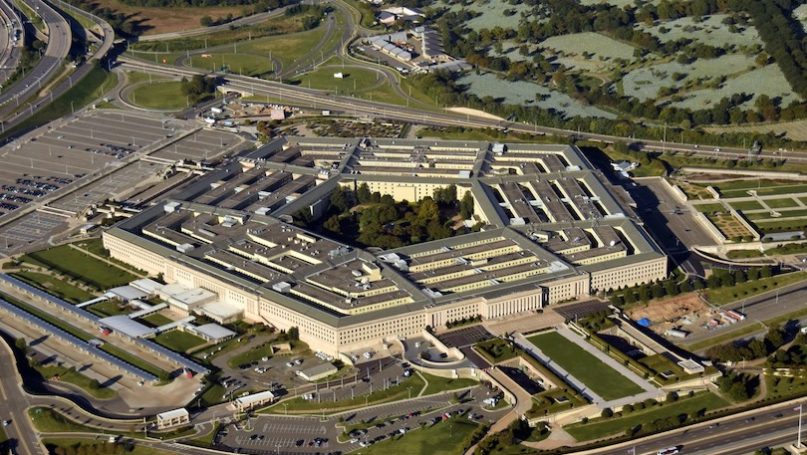Stephen McGlinchey, Rosie Walters and Dana Gold

Marxists believe that war is one of the many tools utilised by capitalists to ensure their power persists by maintaining the status quo in a world where rich states continue to dominate the weak. For example, Marxists would argue that the United States-led invasion of Iraq in 2003 was a disguised attempt to control Iraq through the economic seizure and exploitation of its oil. Under US President George W. Bush, the United States invaded Iraq under the justification of searching for weapons of mass destruction as part of the US-led War on Terror. However, despite no such weapons being discovered, the United States remained militarily deployed in Iraq until 2020 when discussions finally began with the Iraqi government over their withdrawal.
Marxists would point to this situation as evidence of the often thinly veiled / hiding in plain sight motivations for war – which are typically for economic or political exploitation. Indeed, the original name for the 2003 war was touted to be Operation Iraqi Liberation, until it was quickly changed to Operation Enduring Freedom. You may not have spotted the relevance on first glance but abbreviating the former spells OIL. Some have dismissed this as an erroneous slip of the tongue by US Press Secretary, Ari Fleischer (2003), who used that phrase in a press conference at the height of the invasion. Yet, for Marxists, such things more likely represent a brief glimpse behind the veil, highlighting the lack of accountability the elite feel towards legitimately explaining their actions to the general public.
While the above ‘OIL’ example may seem trivial, when added to other examples from the Iraq war it comes to embody the core of the Marxist critique. Often cited here is the awarding of substantial contracts to Haliburton (Rosenbaum 2004) for reconstruction and oil extraction in Iraq. Haliburton was the company that Vice President Dick Cheney had been Chairman and CEO of prior to taking office. Additionally, the following quote by a speechwriter for President Bush is instructive:
The United States has been drawn into an ambitious campaign to undo and recreate the repressive and intolerant Middle Eastern status quo … If successful, this campaign will bring new freedom and new stability to the most vicious and violent quadrant of the earth – and new prosperity to us all, by securing the world’s largest pool of oil (Frum 2003: 282).
The idea behind statements such as this glorifies the capitalists of the West as agents capable of change in world politics whilst non-Western states – like Iraq – lack agency and are therefore prey to have their sovereignty violated and their regime ‘recreated’. Such a world is, to Marxists, unethical and unequal – as is a system that allows such behaviour to go on without meaningful sanction or reprisal for aggressor nations like the United States and its allies.
Moving beyond Iraq and Marxism, nuclear weapons are a major component of warfare in the contemporary era. They have changed the equation when it comes to warfare, giving civilisation-ending power to those who wield them. Yet, only a small number of states have developed these devastating weapons. Addressing this very point, poststructuralism raises an important critique that further allows us to apply our theoretical toolkit to the issue of warfare.
Political leaders and publics are (mostly) content to tolerate quantities of nuclear weapons that could destroy the entire planet many times over, as long as they are in the hands of themselves or their allies (Hansen 2016). In the hands of enemies, however, even the capacity to possibly start developing a small number of nuclear weapons could be seen as reason for panic and action. The weapons undoubtedly exist and have very real destructive capabilities regardless of who holds them. However, from a poststructuralist perspective, discourse is key to how we understand them and act on them. If we live in a society with many such weapons, the dominant discourse may be that ‘we’ would never actually use them unless attacked, that ‘we’ are humane and peaceful, and these weapons may serve our peaceful cause by deterring other states from attacking ‘us’. By contrast, if ‘they’ – that is a state that is not a trusted ally – start developing the capacity to make nuclear weapons, we may well perceive that as an act of aggression.
This can be seen in the examples of Iran and North Korea, both of which have pursued nuclear programmes in recent decades and faced resistance from the international community for doing so, including being referred to as ‘pariah’ or ‘rogue’ states – amongst other such descriptors. Despite material differences in their regimes, both share in common an antipathy towards what they perceive as Western dominance of the global system. They are thereby portrayed as untrustworthy and unfit stewards of nuclear weapons, despite the fact that the United States is the only nation to have actually used them in combat, neatly underlining the ‘us’ and ‘them’ hypocrisy that poststructuralists point out.
No comments:
Post a Comment